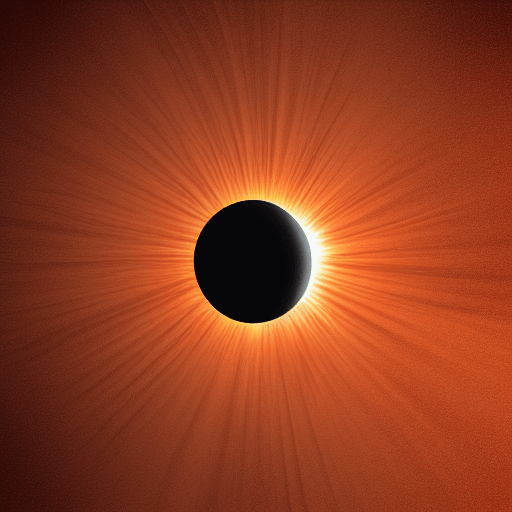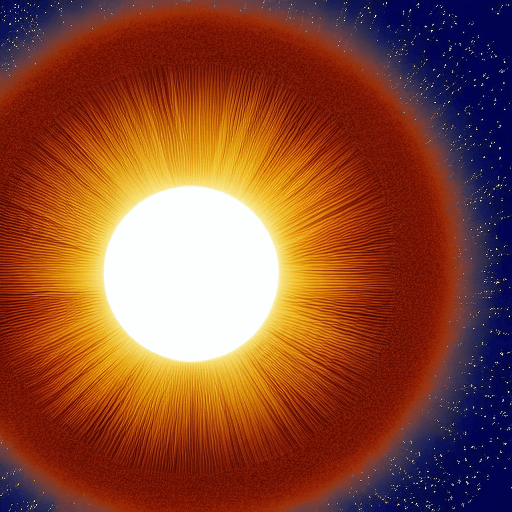How much does the sun weigh?
Why has the true weight of the sun puzzled scientists for so long?
Well, it’s difficult to measure something that is so large and far away.
However, recent advances in technology have allowed us to get a better understanding of how much our sun weighs.
With modern tech and current mathematical calculations, we’ll look at the latest findings on the weight of the sun!
The Sun has a huge mass that makes up the vast majority of the mass in our solar system.
6 key facts about the Sun’s weight:
- The Sun has a mass of about 1.989 x 10^30 kg (or about 333,000 times the mass of the Earth).
- This equates to a weight of about 1.898 x 10^30 pounds, or 9.192 x 10^26 metric tons.
- Over 99.8% of the total mass of the solar system is contained within the Sun.
- The enormous mass of the Sun comes from the huge volume and density required to sustain nuclear fusion reactions in its core.
- If you could put the Sun on a scale, it would weigh about 333,000 times as much as the Earth. The Sun’s weight in pounds is roughly 2 nonillion (2 followed by 30 zeros).
- The Sun’s immense mass creates the gravitational pull needed to keep everything in our solar system orbiting around it.
So while the Sun’s exact weight is difficult to intuit, it is over 300,000 times the mass and weight of Earth. The Sun’s gravity comes from it having this tremendous mass concentrated into a volume over 1 million times that of Earth.

The sun has a mass of about 2 x 1030 kg.
This means that the sun’s weight is about 333,000 times the weight of the Earth
How much does the sun weigh?
The sun is one of the heaviest objects in the solar system. It consists of hydrogen and helium, which are two of the heaviest elements.
The sun also has a lot of gravity, which makes it even heavier.
Scientists have estimated that the sun weighs about 333,000 times as much as the Earth.
That means that if you took all of the mass in the solar system and put it on a scale, the sun would outweigh everything else combined.
Of course, we can’t actually weigh the sun because it’s so far away.
However, scientists have come up with this estimate by studying the orbits of planets and other objects in the solar system.
By measuring how these objects are affected by the sun’s gravity, scientists can calculate their mass.
How much does the sun weigh in pounds?

The sun weighs in at 333,000 times the mass of Earth or about 2 nonillion pounds.
To put that in perspective, it would take almost 9 billion years to count to a nonillion – that’s a 9 followed by 30 zeroes. In other words, the sun is mind-bogglingly huge and massive.
And yet, it’s just an average-sized star in our Milky Way galaxy, which itself contains billions upon billions of stars.
When you think about it like that, the universe is pretty darn big…and we’re just tiny specks in the grand scheme of things.
So the next time you look up at the sun on a clear day, remember just how insignificant we are in the vastness of the cosmos. And enjoy the moment while you can.
How does the sun’s weight affect us?
The sun’s weight affects us in a number of ways.
- First, the sun’s gravity pulls on the Earth, keeping it in orbit. Without the sun’s gravity, the Earth would fly off into space.
- Second, the sun’s gravity also affects the tides. As the sun pulls on the Earth, it also pulls on the oceans, causing the water to rise and fall.
- Finally, the sun’s gravity affects us in a more indirect way. The sun is so massive that its gravity warps spacetime around it.
This means that objects closer to the sun move faster than objects further away from it.
So, in a sense, the sun’s gravity makes time itself go faster near it.
What would happen if the sun lost weight?

If the sun were to (go on a diet and) lose weight, it would have a profound impact on the planets in its orbit.
- The sun provides the vast majority of the heat and light for our Solar System, and its gravity keeps the planets in their appointed places.
- If the sun were to lose mass, its gravitational pull would decrease, and the planets would begin to drift away.
- Additionally, the loss of heat and light from the sun would make it incredibly cold on Earth, and potentially habitable for any life forms that might exist elsewhere in the Solar System.
In short, if the sun were to lose weight, it would have a profound and potentially devastating impact on our Solar System.
How does the sun compare to other stars in size?
The sun is an average-sized star.

The sun is about halfway through its life, and it will eventually expand and become a red giant. When it dies, it will collapse in on itself and become a white dwarf.
There are many stars that are much larger than the sun, such as supergiants.
- Some of these stars are so large that if they were placed where the sun is, they would extend past the orbit of Jupiter!
- There are also many stars that are much smaller than the sun, such as brown dwarfs.
- Brown dwarfs are not massive enough to fuse hydrogen in their cores, so they do not shine with their own light.
- Instead, they emit a dim red glow. Whether large or small, all stars are incredible objects, and each one has its own unique story to tell.
What is the significance of the sun’s weight?
The sun’s weight is important because it provides the gravitational force that maintains the planets in orbit around it.
Without the sun’s gravity, the planets would fly off into space.
The sun’s gravity also affects the tides. The tide-producing force of the sun is about half that of the moon.
However, because the sun is so much bigger than the moon, it produces a much greater tidal force than the moon does.
The sun’s gravity also affects the formation of star clusters and galaxies.
Stars are drawn together by their mutual gravitational attraction, which leads to the formation of star clusters and galaxies.
Without the sun’s gravity, there would be no star clusters or galaxies. In short, the sun’s weight is significant because it affects both planetary orbits and galaxy formation.
So although we can’t say for sure how much the sun weighs, we know that it’s extremely heavy.
Article Sources
Jacks of Science sources the most authoritative, trustworthy, and highly recognized institutions for our article research. Learn more about our Editorial Teams process and diligence in verifying the accuracy of every article we publish.
